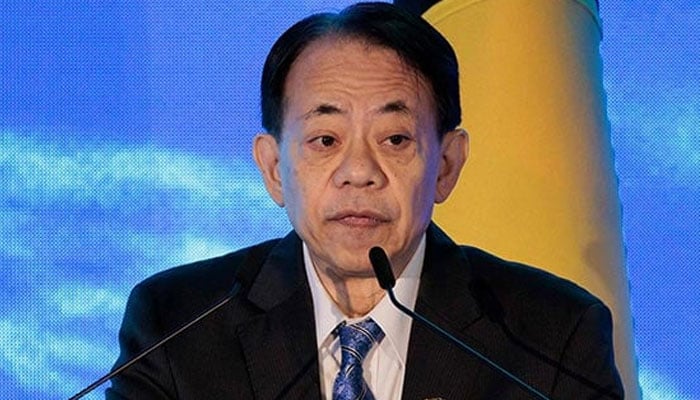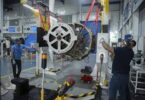SEOUL (APP): Acknowledging quick stabilization measures taken by Pakistan to put the national economy back on track, Asian Development Bank (ADB) President Masatsugu Asakawa on Tuesday assured the bank’s continued support for the incumbent government’s critical and structural reforms at a time when the country recently witnessed devastating floods caused by climate change.
Addressing a press conference at the ADB Board of Governors’ 56th annual meeting here at Incheon, a bordering city of South Korea’s Capital Seoul, the president said Pakistan was taking ‘quick’ required stabilization measures by containing spending, enhancing tax revenues and improving the financial sustainability of energy sector. He said the ADB was supporting these policy measures that would definitely improve the economic condition of the country and help improve fiscal space for enhancing social protection transfers.
He said the bank would continue supporting Pakistan in these reforms through Policy-based lending operations to help improve the economy and financial position. Answering a question of APP correspondent about predicted heavy rains and floods this year in Pakistan and ADB’s response in this regard, he said “… the government [of Pakistan] is taking swift economic stabilization and rehabilitation measures… These structural reforms will definitely bring [economic] stability of Pakistan and create fiscal space for enhanced social protection transfers.”
Masatsugu Asakawa renewed pledge of the international financing lender to continue extending all possible support to Pakistan, saying “The ADB will maintain supporting Pakistan on its economic structural reforms.” The ADB will maintain to continue its support to improve Pakistan’s economic condition.”
The ADB President also announced new programme IF-CAP: the Innovative Finance Facility – for Climate in Asia and the Pacific, terming the plan “a global first in its scale and scope.” Elaborating the IF-CAP facility, Masatsugu Asakawa said it would change the way ‘we do business.’ He was of the view that the region needed trillions (of dollars) in investment to combat climate change and help reach that level, there was need to maximize our capital in new ways. He said the IF-CAP would multiply ADB’s lending capacity through leverage and would allow crowding in substantially more resources from the private sector, and other investors who share bank’s commitment to climate action.
He explained that the programme was based on the use of financial guarantees from ADB partners, adding by guaranteeing a portfolio of the bank’s sovereign loans, they would help shoulder some of the loss in case of a credit event in one of our borrowers. “This is a groundbreaking arrangement because it will reduce the capital ADB needs to hold for credit risk, freeing up capital for a substantial increase in lending to climate projects. Every dollar of guarantee into IF-CAP will result in the capacity to make new loans,” he added.







